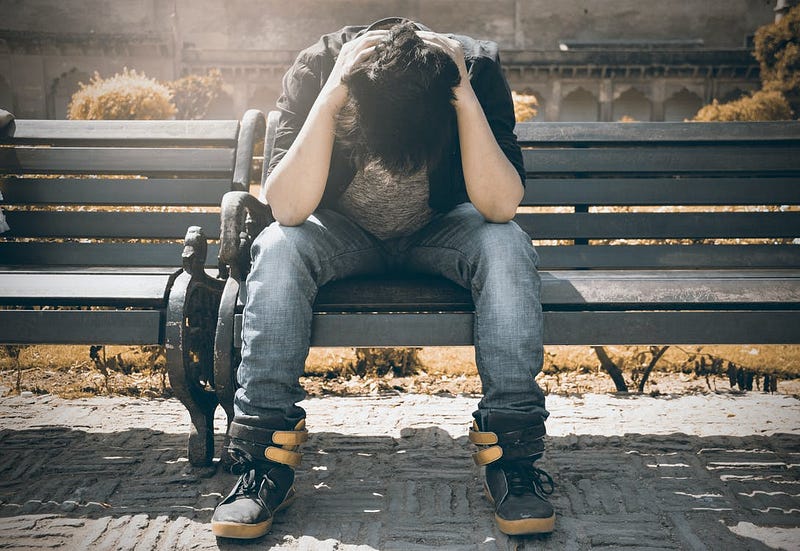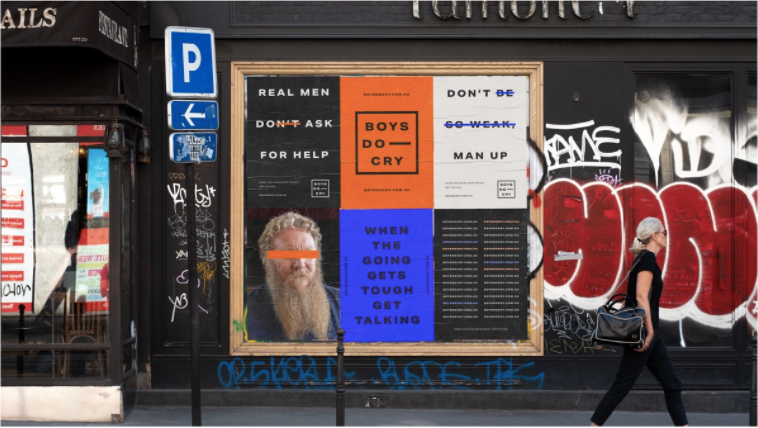Let Boys Cry
A short personal look into the topic of men’s mental health and the cost of emotional repression.

I remember the first time someone bullied me. I don’t remember what happened but after that, I started to cry. Tears welled up in my eyes. The teachers helped me and the students didn’t pick on me the rest of the day. Some of them accused me of using my emotions to manipulate the teachers into siding with me, but the main takeaway was that I had to grow up, I had to be less sensitive.
I had to be more of a man.
When we boys were growing up, we were told by our parents and society to be quiet and to “man up” whenever something bothered us. Unlike girls, it’s not easy for boys to open up to their feelings because it’s not easy to flip around and express our feelings. One moment they tell us to be tough, the next is that we should be sensitive. Real men share their feelings, but real men control or hide their feelings.
As someone who grew up sensitive to other people’s emotions, I consider that gift to be a blessing and a curse. On the one hand, I was compassionate and could empathise with other people as easily as one breathes in air. But because I was a boy, and to a certain extent a man, I was shunned by my classmates when I cried easily or when I couldn’t handle insults towards my perceived lack of masculinity.
Why ‘Boys Don’t Cry’
Men have been expected to control their emotions in a peculiar way. There are times that we are allowed to be vulnerable, but sometimes we’re not expected to be vulnerable during the supposed moments.
This has been happening for generations to the point it has become a gender norm. If we do not stick to certain “manly traits”, then we are not “real” men — this is known as toxic masculinity. Why is it toxic? Because it’s harmful to men themselves.
In short, toxic masculinity is a term that refers to societal and cultural norms that are harmful to men and society as a whole. These norms refer to the idea that men must behave in a certain way and that homophobia and aggression are part and parcel with being a man. Moreover, the idea that men must absolve themselves from being emotional and acting tough all the time is detrimental to their mental health.
According to an article published by the Star, the National Suicide Registry of Malaysia has proven that men are three times more likely to commit suicide than women and one of the main reasons is the refusal to open up. Some men choose to toughen up and face their issues alone, despite needing professional help. They even choose to not cry and stay stoic over the issues they face simply because they think that’s what men should do.
Normalising this has deteriorated men’s mental health. Crying may not give a direct impact, but it does help relieve emotional pain by releasing hormones such as oxytocin and endorphins. By relieving that pain, it can actually help us stand back up and take the next steps towards overcoming our challenges. If men can’t cry, if men can’t seek help, then what can men do? To summarise this, keeping it in is not good for our mental health, or for a matter of fact, anyone’s at all.
The Progress So Far
Despite all this, on the bright side, we have witnessed a significant increase in advocacy on mental health for both men and women. Azran Osman Rani, a businessman and author, established Naluri, a start-up that focuses on customising a digital treatment programme for varying emotional and mental needs. Dr Amer Siddiq, an associate professor of psychiatry at Universiti Malaya, hosts podcasts discussing mental health awareness in Malaysia. He also initiated a website known as mentalhealth.my that aims to produce mental health awareness content that is more exciting and innovative.
Now, more of us men seek professional assistance when our mental state and emotions are unstable, and we are becoming more aware of the importance of managing our emotions correctly. In America, the National Institute of Mental Health (NIMH) launched a campaign “Real Men. Real Depression”, which ran from 2003 to 2005. The campaign helped educate the public regarding depression among men. It featured the real stories of men who have been seeking treatment for their depression. Australian indie agency The Hallway launched a campaign in November 2021 to encourage men to talk about mental health. The initiatives include outdoor advertising, radio ads and a website. The agency even produced a remake of the song “Boys Don’t Cry” by The Cure, which is a choir version that featured 30 men from diverse walks of life.

Younger parents are also starting to teach their sons to accept all emotions, even sadness, anger and disappointment. Nowadays, we hear less fathers telling their sons to suppress their tears. These steps taken by parents are very useful, particularly because childhood is the stage the brain is developing and growing, so it is wise to provide a positive and healthy environment. In Malaysia, the Women’s Aid Organisation (WAO) has made it a point that unless action is taken to address this, women will be at the receiving end of toxic violence from men.
Men who cry should actually be considered real men because of their bravery to express emotions. As a man myself, I am not embarrassed of the fact that I do cry when things get challenging. I was criticised as a child for crying so much. Until today, I use crying as my coping mechanism, but not as my final resort. I cry so that I can prepare myself to face my challenges and overcome them. Life does get tough sometimes, and for some maybe all the time, so to all the boys and men out there, cry, let the pain flow through and stand back up stronger. Normalise men who cry, let boys cry.
However, crying shouldn’t be the end game. Instead of crying and wallowing in self-pity, boys should learn the importance of showing emotions while understanding that rising up and getting stronger is a way to be emotionally mature. Crying while you’re emotionally mature and being fragile are two wholly different things. In short, let boys cry but let them rise up so they can become men.
[Written by: Derek Tan Tjin Liang & Amirul Haziq bin Amri. Edited by: Siow Chien Wen]

